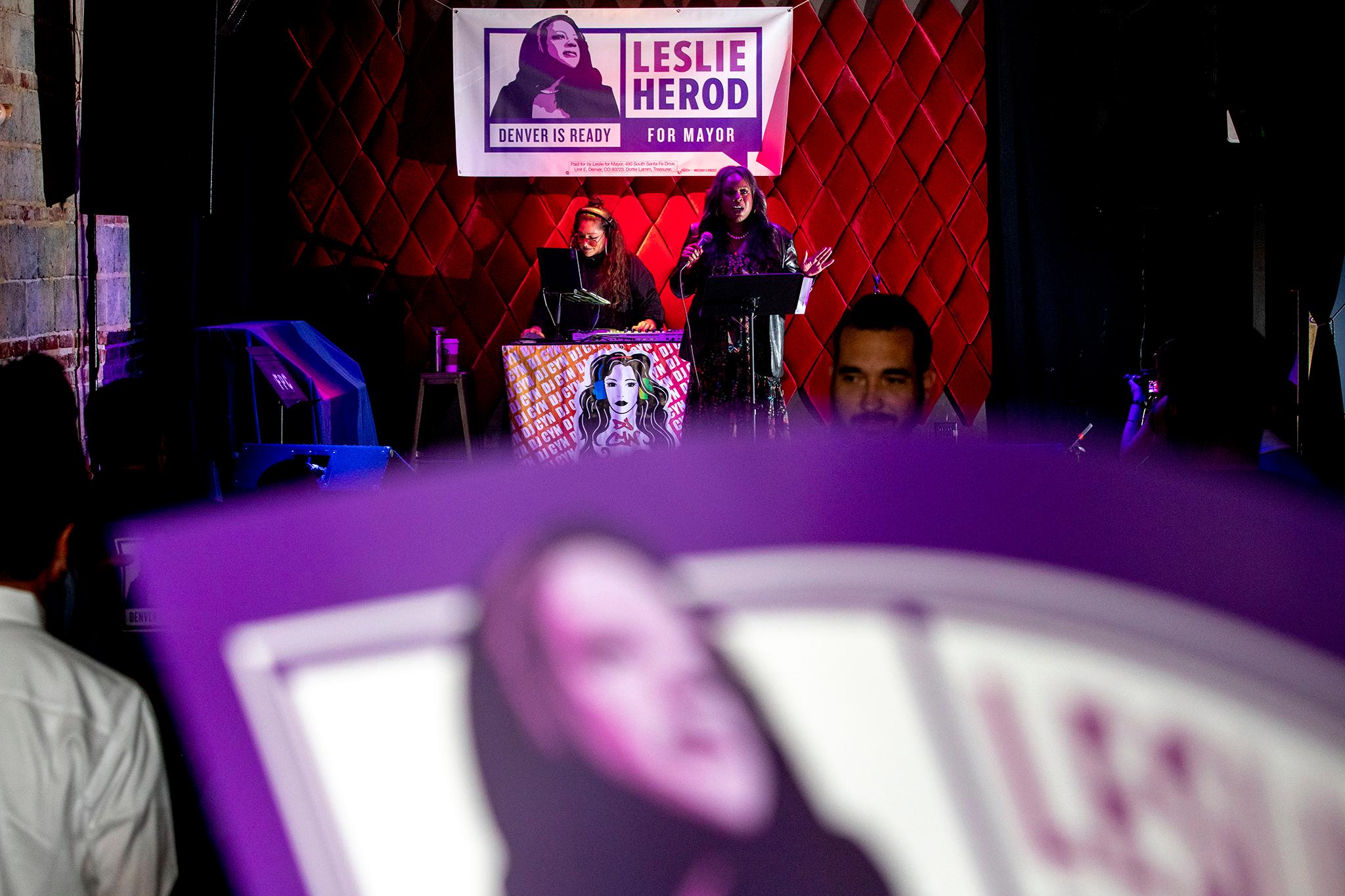Democratic State House Representative Leslie Herod, a candidate for mayor of Denver, was hit with an unusually large $15,200 penalty from the Colorado Secretary of State for not filing her required personal financial disclosure, required of all state legislators.
The state reduced the fine to just $50 on Friday, saying that it was Herod's first delinquent report in the last 24 months.
The penalty was first reported last month by a columnist for The Denver Gazette.
According to an Oct. 2022 letter from the Secretary of State, Herod, who won election to a fourth term in the District 8 Denver seat in the last election, was 304 days late filing the disclosure.

The penalty came as a shock to Herod.
"We were all surprised," Herod said in an interview with Denverite. "Once we found out about it, we took steps to rectify it right away."
The Secretary of State did send eight delinquency letters to Herod, from Dec. 2021 to Oct. 2022, noting in detail that she had not filed the report.
"And unfortunately, those weren't received," Herod said. "We don't know why, but they weren't received. And so again, once we found out about it, we addressed it right away."
In Herod's waiver request letter to the Secretary of State, her campaign argued that the entire penalty should be dropped due in part to confusion about a previous invoice for a different penalty, but Herod's waiver request didn't mention that the state's communications weren't getting to her.
"Confusion over the 90-day rule, a previously filed report for Herod as an incumbent, and an invoice for a prior period led to this late filing. Effectively, Herod believed that she had filed the PFD [personal financial disclosure] update that fulfilled her obligations," reads the waiver request from Herod's campaign.
But the Secretary of State also sent Herod a letter dated May 2, 2022 reminding her that, despite paying a different invoice, Herod still had not fulfilled her obligation to file a personal financial disclosure, noting, "the Tracer account does not show receipt of the PFD due 12-27-2021 and is therefore still outstanding and accruing penalties. Because of this the second check received for $200 is returned in this mailing."
Almost six months after the May 2022 notice, and four more delinquency letters later, her campaign filed the disclosure and a waiver request simultaneously on Oct. 27, 2022, less than two weeks before the 2022 election and nearly a year after the disclosure was due.
Herod also received a penalty and subsequent waiver for not filing a personal financial disclosure back in 2017. She has filed her city financial disclosure as required.
In waiving the penalties, a spokesperson for the Secretary of State's office said in an email that no favoritism was played. The waiver was granted in accordance with their rules, the spokesperson said, as it was the only delinquency in the last 24 months for Herod. "The Department applies the waiver policy evenly and that policy has been in place since 2012 when Secretary Gessler adopted it."
Still, penalties of this magnitude are uncommon for sitting lawmakers.
There are about 30 state-regulated campaign committees in Colorado with outstanding penalties larger that Herod's $15,200 penalty, but only a few are from active campaign accounts, and none of are currently elected representatives.
State law requires the timely personal financial disclosures, § 24-6-201 of Colorado's Revised Statutes, the "Sunshine Law," states: "In order to continue the public confidence in the integrity of government officials and to promote trust of the people in the objectivity of their public servants, this open disclosure law is adopted."
Herod agrees with this. "It's important to have transparency in our financial disclosures, the people who we represent do wanna know if there's any conflicts in our reports," she said. "Of course, I do not have any. My reports haven't changed much as a public servant, you know, we sacrifice a lot to be in these positions."














